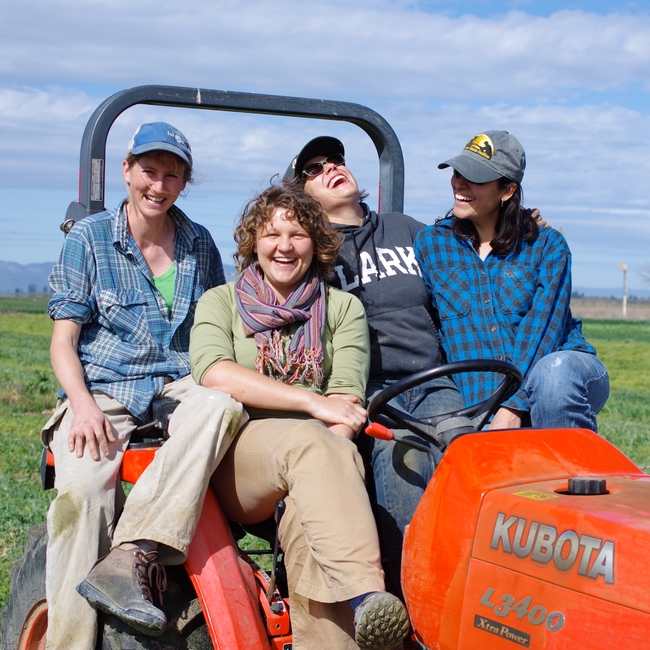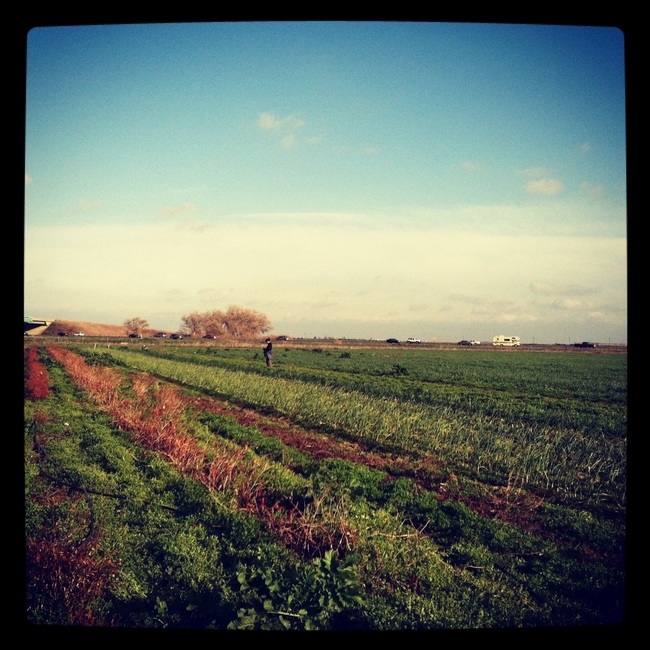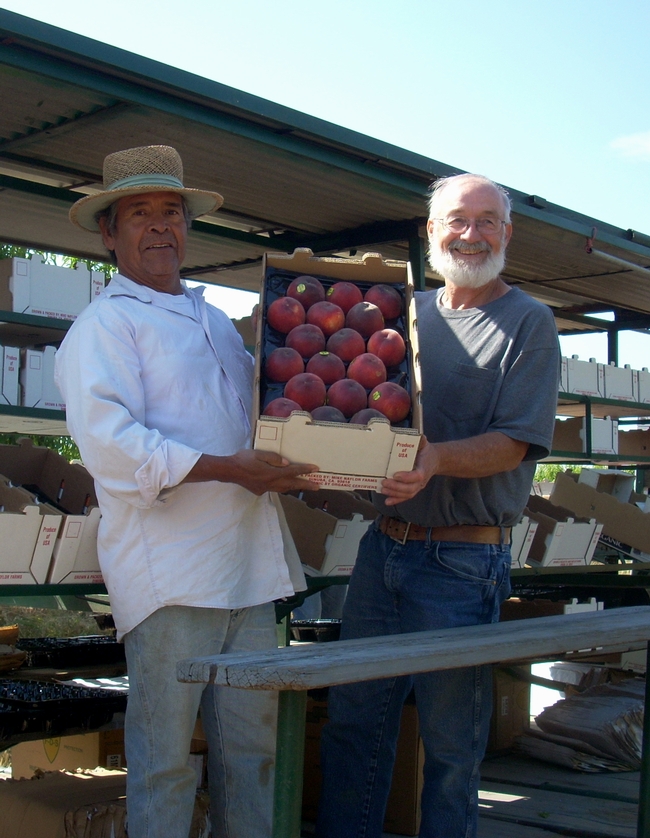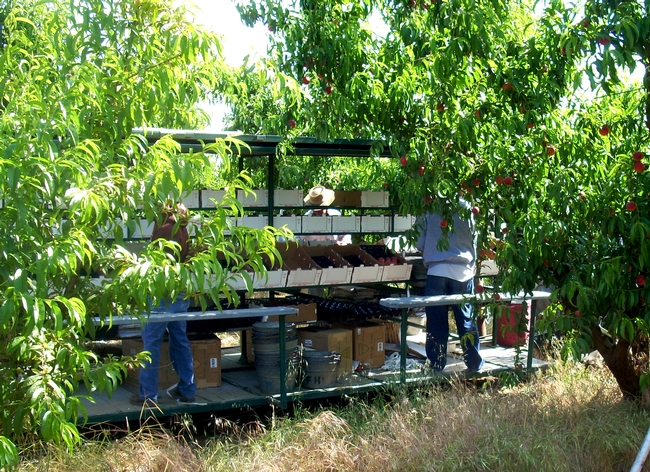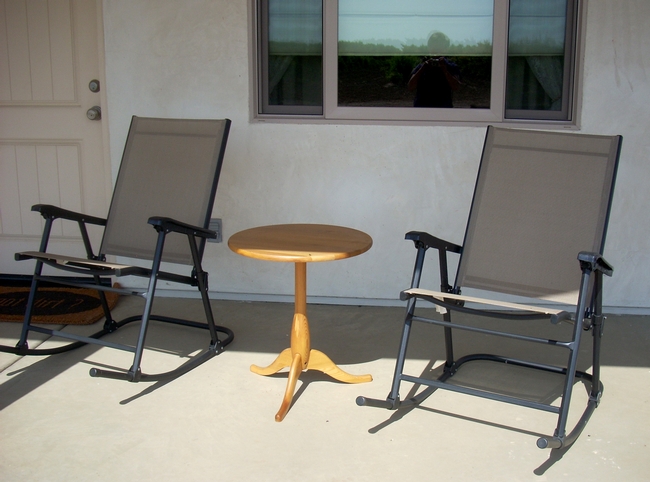Posts Tagged: peaches
Late-harvest processing peaches produce more profit, new UC studies show
Tree fruit growers can receive premiums for delivering certain extra-early varieties of peaches, but peach farmers may net roughly $800 more per acre from late-harvest processing peaches than extra-early harvest varieties, according to new cost studies released by the UC ANR Agricultural Issues Center and UC Cooperative Extension.
To help farmers make decisions on which peach varieties to plant, UC researchers present sample costs to produce extra-early harvested cling and freestone peaches and late harvested cling and freestone peaches for processing in the Sacramento and San Joaquin Valley in these studies.
Although processors pay more for extra-early harvested peach varieties than late-harvest peaches, the researchers found that yields are higher for late-harvest varieties while costs for hand thinning the fruit are lower.
“Peaches harvested early in the season have less time to grow compared to peaches that get to hang on the tree another month or more,” explained Roger Duncan, UC Cooperative Extension advisor in Stanislaus County, who coauthored the studies. “Therefore, more fruit has to be removed so the remaining fruit can size. That means it costs you more to produce less.”
The analyses are based upon hypothetical well-managed farming operations using practices common to the region. The costs, materials and practices shown in these studies will not apply to all farms. Growers, UC ANR Cooperative Extension farm advisors and other agricultural associates provided input and reviewed the methods and findings of the study.
Both studies assume a 100-acre farmer-owned operation with 40 acres of cling peaches. The remaining acreage for both hypothetical farms is planted in other mature tree crops. The estimated economic life of the extra-early harvested cling peach orchard and the late harvested cling peach orchard is 18 years.
Some of the major differences between the two studies are return price, yield and fruit thinning cost. The extra-early harvested varieties have a price of $545 per ton, a yield of 17 tons per acre, and a thinning cost of $1,445 per acre. The late harvested varieties have a price of $490 per ton, a yield of 20 tons per acre, and a thinning cost of $1,177 per acre.
Asked if a small farm could save on fruit thinning expenses by doing it themselves, Duncan replied, “I guess it would be possible for a small family operation to do the thinning themselves, but not likely. It can take 20 to 40 minutes to thin a single tree. If there are 151 trees per acre, you can see that it would take one skilled person over a week to thin one acre.”
The authors describe the assumptions used to identify current costs for production material inputs, cash and non-cash overhead. Ranging analysis tables show net profits over a range of prices and yields. Other tables show the monthly cash costs, the costs and returns per acre, hourly equipment costs, the whole farm annual equipment, investment and business overhead costs and the operations with equipment and materials.
Free copies of “Sample Costs to Produce Processing Peaches, Cling and Freestone Extra-early Harvested Varieties, in the Sacramento and San Joaquin Valley – 2017” and “Sample Costs to Establish and Produce Processing Peaches, Cling and Freestone Late Harvested Varieties, in the Sacramento and San Joaquin Valley – 2017” are available on the UC Davis Department of Agricultural and Resource Economics website at https://coststudies.ucdavis.edu. Sample cost-of-production studies for many other commodities are also available.
The cost study program is funded by the UC Agricultural Issues Center and UC Cooperative Extension, both part of the UC Division of Agriculture and Natural Resources, and the UC Davis Department of Agricultural and Resource Economics.
For additional information or an explanation of the calculations used in the studies, contact Jeremy Murdock at the Agricultural Issues Center, at (530) 752-4651, Janine Hasey, UC Cooperative Extension advisor for Sutter/Yuba counties, at (530) 822-7515, or Duncan at (209) 525-6800.
Summer farm fun
This time of year, most farmers don't get much sleep. Tomatoes, pears and peaches often ripen in the Sacramento Valley faster than the harvest crews can pick them, even working 12-hour days. But this is also the season that some farmers are happy to show off their farms to visitors, inviting guests to enjoy the delightful flavors and beauty of the harvest in a pause from the bustle. UC Cooperative Extension hosts an online agritourism directory and calendar, www.calagtour.org, to help Californians find farms and ranches to visit. Here are a few upcoming opportunities for summer fun on California farms, pulled from the calendar:
- Plumas County Farm Crawl - Up the Feather River Canyon, on the eastern side of the Sierras, are the beautiful communities of Quincy and Indian Falls. Small-scale growers, members of Plumas Grown, offer tours and fresh snacks from their fields from 8 a.m. to 12 p.m. on Saturday August 6, 2016. Each farm will offer tours on the half hour (8:30, 9:30, 10;30 and 11:30). Participating farms include a school garden project, Five Foot Farm, Shoofly Farm and Sundberg Growers. Strawberries, tomatoes, garlic, carrots, huge heads of lettuce, hoop houses, and intense cultivation on small plots will be featured. Bring the kiddos, friends and family (no dogs please). All of these operations use sustainable growing practices and are happy to chat with you about why they love to grow good food. Admission by donation, no pre-registration required. Learn more: (707) 217-6415 or www.plumasgrown.com/
- Good Humus Peach Party (Yolo County) - Every year on the first Saturday in August, Jeff and Annie Main, owners of 20-acre Good Humus Produce, hold a celebration to give thanks for the year's fruit harvest. They invite you all to come out, see the farm, have a refreshment and enjoy all that Good Humus has to offer. This is a pot luck party; guests are asked to bring a dish to share and their own plates, silverware and cups. No cost, but donations are welcomed. The Mains will provide peach pies, peach ice cream, peach salsa, peach pizzas, and more. You are invited to come early and be part of the experience of making all the peachy fun food. Other activities include a treasure hunt, farm tours, stock tank dipping, music and neighborly chat. Saturday August 6, 1 p.m. - 11 p.m. Learn more
- Tomato Sauce Party at Eatwell Farm (Solano County) - It's time to join in on the tradition. Let's get canning! Tomato season is in full swing on the farm, and the plants are bursting with ripe and juicy tomatoes ready for picking. Join us as we harvest the bounty of the farm, toss it in a pot, and create delicious tomato sauce to savor the rest of the year. The produce is free, so bring as many jars as you can process over the two day event. The ticket price covers the cost of hosting the event and paying staff. Cost: adults $20, Children $5. August 6 - 7, 2016 Learn more and buy tickets here
- Grape Days of Summer (Placer County) - Celebrate PlacerGROWN — local wine, local food, local agriculture. Take a self-guided tour of up to 20 wineries, taste foothill wines and enjoy a unique and educational experience at each stop on the Placer County Wine Trail. Saturday & Sunday, August 6 & 7, 11 a.m. to 5 p.m. WHERE: Placer County Wine Trail - Auburn, Lincoln, Loomis, Meadow Vista, Newcastle & Rocklin. Activities: Learn About Wine & Wine Making • Live Music at Some Locations • Food at Every Winery • Barrel Tastings • Vineyard Tours • Vertical Tastings • . . . and more! Tickets: Weekend Pass - $45.00, Sunday Only - $25.00/person, Designated Driver - $10.00/person website, more info
- Wine and Produce Passport Weekend (Sacramento River Delta) - Just minutes from Sacramento and Elk Grove, along scenic CA Hwy 160, Delta Farm and Winery Trail members will open their farms and wineries to the public. Farms are open from 9:00 a.m. to 5:00 p.m. and wineries from 11:00 a.m. to 5:00 p.m. During Passport Weekend, enjoy farm tours, local wine tastings, farm equipment displays, and contests. Fresh produce - including tomatoes, pears, melons, squash, stone fruits, sweet corn, zucchini, beans, eggs, and organic produce - will be readily available at many of the farms. Saturday and Sunday August 13 and 14. Tickets: adults $25 in advance, $35 week of purchase and are valid for both days. Kids under 21 are free. Tickets are available for purchase online at www.deltapassport2016.eventbrite.com. Each visitor over 21 will receive a wine glass at their first winery stop. sacriverdeltagrown.org/
- Good Land Organics Coffee Tour (Santa Barbara County) - The tour will be lead by Good Land Organics owner and grower, Jay Ruskey. You will be welcomed with fresh coffee, freshly made juice and seasonal fruit. Jay will give an overview of the coffee research collaboration that has been conducted with the assistance of the University of California Small Farm Program. He will then lead you on a moderate level hike where Ruskey will explain the dynamics of new crop adaptation and integration of organic tree fruit agriculture. The walk will take you through the eclectic mix of exotic fruit varieties that grow on the farm. Each person will have an opportunity to taste a fresh picked coffee berry and discover the original flavors of the coffee bean, while discussing coffee cultivation and post harvest processing. On your return hike, there will be time for open discussion and for any further questions. At noon you have the option to enjoy your picnic lunch at our pond. August 13, 2016, 10:00 a.m. - 1:00 p.m. Cost: $50 per person. website, reservations
Learn about more farms, ranches and adventurous fun at www.calagtour.org.
UC explores ladderless peach and nectarine orchards
Can shorter peach and nectarine trees reduce labor costs?
The answer may be developing soon at a 4-acre test orchard south of Fresno, where University of California researchers are planting semi-dwarfing rootstocks as part of a large, integrated experiment on virtually every aspect of peach and nectarine production.
“We're designing ‘ladderless' orchards, which have the potential to cut labor costs by 50 percent or more and improve worker safety,” said UC Cooperative Extension specialist Ted DeJong, a plant physiology professor at UC Davis. DeJong and Kevin Day, a Cooperative Extension farm advisor in Tulare County, are leading the extraordinary experiment.
Conventional peach and nectarine trees grow about 13 feet tall. Setting up, climbing and moving ladders to prune the trees and harvest fruit consumes about half the workday. Ladders are dangerous, too, which is why peach and nectarine growers pay about 40 percent more for workers' compensation insurance than growers who work with more low-lying commodities, like grapes.
Developed by breeders at UC Davis, the new rootstocks will produce trees that grow about 7 or 8 feet tall and can be pruned and harvested from the ground. With the right orchard management — which Day and DeJong will test at their plots at the UC Kearney Agricultural Research and Extension Center, near Fresno — the shorter trees could produce just as much high-quality fruit as their lofty kin.
“Ladderless orchards would be huge for our industry,” said Bill Chandler, who grows several varieties of peaches and nectarines on his 250-acre Chandler Farms in Selma, California. “There are so many costs associated with ladders that many growers are switching over to almonds just to stay in business. It costs me $1,400 an acre to thin our trees.”
“Even with conventional rootstocks, I prune my trees so workers can take two fewer steps on the ladder come harvest time,” he said. “And the savings are huge, even with that. It's important to keep farm work safe. And it's important to keep farming viable, or else we'll be getting all our produce from overseas.”
Shorter trees are just one of the elements of DeJong's and Day's experiment, which explores best practices for keeping peach and nectarine production economically and environmentally sustainable. Funded by the UC division of Agriculture and Natural Resources, their model orchard will integrate virtually every UC pomology advancement in the past 30 years.
You can read more at: http://www.caes.ucdavis.edu/news/articles/2014/08/ladderless-peach-and-nectarine-orchards-explored
The promise of peaches
Tomatoes grow fine in my Sacramento backyard. I can usually count on plenty of basil, more zucchini than the neighbors will take, some snow peas, chard and kale, a few small peppers and eggplants and whatever salad greens survive the slugs (in other words, lots of arugula). We have oranges and grapefruit, but I wouldn't even try to grow peaches or apricots. It takes a farmer to grow peaches. It takes a good farmer to grow good peaches. It takes a good farmer and good weather to grow Blenheim apricots.
Instead of planting a peach tree, I joined a fruit community supported agriculture (CSA) program, promising to pay $15 a week for a box of fresh fruit every week from June 7 until October 4. By joining I am agreeing to share the risk and the promise of the harvest of a four-acre fruit orchard with four part-time beginning farmers growing fruits and vegetables just west of Davis.
Emma Torbet and Sasha Klein started growing vegetables as The Cloverleaf at Bridgeway Farms about two years ago. Rich Collins, land-owner and sponsor of The Cloverleaf, planted the fruit trees four years ago but doesn't have the time to manage the orchard, so he leased it to the Cloverleaf farmers this year. Aubrey White and Marisa Alcorta joined as farm partners also this year. Together, the four women work long hours on weekends and evenings to farm an acre and a half of vegetables and the four acres of peaches, apricots, nectarines and figs. Like most beginning farmers, all four work full-time at other jobs; Torbet at the Russell Ranch Sustainable Agriculture Facility, Klein with the Farmer Veteran Coalition, White with the UC Agricultural Sustainability Institute, and Alcorta with the National Center for Appropriate Technology.
The Cloverleaf at Bridgeway Farms offers a chance that is, Aubrey White says, "both attractive and terrifying, with everyone trying to make it happen while keeping their jobs." The monetary investments were low, as they have no buildings or heavy equipment, and Collins offered a very attractive lease arrangement to encourage the new farmers. The vegetable land is certified organic and the orchard land is in transition to organic. The part that is terrifying is the risk of crop failure and poor yields that all farmers face.
The Cloverleaf farmers all have some farming experience, but the orchard presented new challenges. White started with the UC Master Gardener Program in Los Angeles, worked with urban farms and community gardens, and for two years at the UC Davis Student Farm. But, she says, taking on the orchard involved a "crazy different learning curve for three out of four of us." Even with all of her agricultural experience, she felt at a disadvantage not having a science background, particularly not having the soil science information to best manage the orchard.
Luckily, the new farmers found a mentor. Organic farmer Carl Rosato, owner of Woodleaf Farm near Oroville, is the soil scientist peach farmer that every beginning orchard manager would love to know. Rosato has taken on advising the Cloverleaf farmers as they learn to confront peach leaf curl and blossom rot by keeping the soil healthy and pruning the trees to ensure good air ventilation. Knowing that Rosato is involved gives me hope that we'll see some Blenheim apricots in the CSA box this June.
The original point of CSA programs was for the community (eaters) to share the risk of farming with the farmers, and to pay for a season's worth of produce up front to ease the cash-flow burden on the farmer before the harvest. In a pure traditional CSA, the farmer estimates the production for the year and sells shares in that production to as many families as the farm can be expected to feed. Each family receives a box of produce every week, with the full week's harvest divided up among the boxes. Some weeks there would be more variety than others; bounty and low yield would all be shared. Some years there would be good harvests and some years, poor harvests. The farmers are not at the mercy of the market, either wholesale buyers or competitive farmers' markets.
Most California CSA operators do not follow this traditional model, but sell to wholesale customers, restaurants, farmers markets and food processors in addition to the CSA customers. This means, in practice, that CSA customers do not share the full risk of the farm production and can expect a more consistent quantity in their box or basket each week. However, CSAs are an important and valuable part of most CSA operators' marketing plan. A UC study of several California organic farms selling through different marketing channels showed that the CSAs consistently returned the most profit to the marketing investment.
As a small farm with a young orchard, The Cloverleaf's fruit CSA still involves a little risk to the members. If the rain continues through June, as it did last year, we may not get those delicious Blenheims. Last year everyone lost them. But CSA manager White promises to give first priority to the CSA customers, with 25 to 50 percent of the fruit harvest going to CSA members. If needed, Cloverleaf will buy more blackberries from Collins or fill the boxes with the more successful varieties of peaches and nectarines.
In addition to the CSA, The Cloverleaf farmers will operate a farm stand, several U-pick days and a harvest festival this year, and sell fruit to several wholesale buyers. Just in case they don't have enough to do, they are considering introducing pastured chickens to the farm next year. The farm stand will open on Memorial Day at the Kidwell Road exit off Highway 80 between Davis and Dixon, and will remain open on Saturdays and Sundays until October. Information about the U-pick days and the harvest festival (and lots of other on-farm activities throughout California) will be listed on the UC Agritourism Directory, www.calagtour.org.
There might be a few shares left for the fruit CSA. For more information, visit the website or Facebook page of The Cloverleaf at Bridgeway Farms or email thecloverleaffarm@gmail.com. I'm looking forward to those peaches!
Stay the night in a peach orchard?
Seeing the milky way clear and bright in the night sky wasn't anything special to Dinuba peach growers Nori and Mike Naylor, but they noticed that it was a simple treat enjoyed by visitors to their new farm stay in the organic orchard. So Nori is thinking about mentioning the stars on Twitter, or Facebook, or on her blog perhaps.
Mike Naylor has been growing peaches organically since 1984 on 95 acres he took over from his father. He sees a huge disconnect between people who grow food and the majority of people who no longer know anyone who farms or ranches.
And he also sees that many of these people want to connect to the farm and want their children to have that connection. Since the Naylors were not using the four bedrooms in their ranch house, they decided to share their home with visitors who want to experience a little bit of life in the orchard. Naylor's Organic Family Farm Stay opened to the public in February this year.A farm stay is overnight lodging offered by working farmers or ranchers in their own home to a few guests at a time. A state law passed in 1990 allows this in California without requiring the host farmers to have a restaurant-style kitchen in order to serve meals to their guests. Tulare County has a lot of farms, but the Naylors might be the first farm stay in the county. They were happy to be a test case as county staff figured out the rules and regulations, permits needed and fees to charge for this new business.
Visitors have started arriving; an organic pest control guy from Florida, a compost salesman from Washington, missionaries from their church, a doctor from Massachusetts who was working at a clinic in Visalia, a couple from Hanford looking for an overnight getaway, a business acquaintance with his family, and others. Guests enjoy the peace and quiet, the night sky, and a homemade breakfast. They walk the orchard with Naylor and learn a little about the art of growing organic peaches and nectarines, and they get to pick a few of their own if they want.
Nori Naylor is in charge of telling the world about the peach farm, and inviting visitors. Since Sequoia and Kings Canyon national parks are only an hour away, she hopes that some people will stop by on their way to the parks. She is working with the Visalia Convention and Visitors Bureau to promote the farm stay and offer group tours of the farm, and exchanges brochures with local restaurants and shops.
The Naylor's small farm has a worldwide presence on the internet. Listings on CalAgTour.org and Farmstayus.com have brought inquiries from international travellers. Nori maintains the website and spends a half hour every day keeping up two Facebook pages; one for the farm and one for the farm stay, as well as sharing on Twitter. Naylors Organic Farm also lists on a new site set up by Top 10 Produce, using a new QR code that people can scan with their smartphones to link to the farm location, website, Facebook page and, coming soon, videos of the farm.
Mike and Nori Naylor are pioneering new ways to share their good life with others, because they believe that these connections are as important as the fruit they grow and sell. Mike enjoys showing visitors how to tell if a peach is ripe enough to pick and letting them watch the field-packing of the fruit. He explains how the picking crew will pick each tree five times, to make sure that each fruit is not picked until it reaches the peak of flavor. He will explain organic farming methods and also how he now stickers each peach with a bar code for retail and distributor customers. Of course, some visitors just like to relax and sit in the shade. And that's just fine with the the Naylors.










